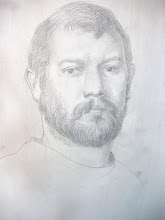
I used to marvel and at the same time to grieve that so many excellent and superior arts and sciences from our most vigorous antique past could now seem lacking and almost wholly lost. We know from [remaining] works and through references to them that they were once widespread. Painters, sculptors, architects, musicians, geometricians, rhetoricians, seers and similar noble and amazing intellects are very rarely found today and there are few to praise them. Thus I believed, as many said, that Nature, the mistress of things, had grown old and tired. She no longer produced either geniuses or giants which in her more youthful and more glorious days she had produced so marvelously and abundantly.
Leon Battista Alberti On Painting
At the dawn of the Rinascimento, when the warmth of the Tuscan sun once again embraced the dew laden poppies and the golden glow of its morning light first reflected off the still faced Arno, the last silent moments of a long, long night were broken by these words. And let it be said that this enslaving tranquility was not put to sleep by the crowing of the Chanticleer, but the lauds of the rogue Nightingale, enamoured with its own faint shadow.
For every dawn there is a dusk; and for every day there is an evening. What has passed will come, and will come to pass again.
While the earth remaineth,
Seedtime and harvest,
And Cold and heat,
And summer and winter,
And day and night shall not cease.
Genesis VIII: 22
Let comforting History give us Hope and Faith to open our dusty eyes to rosy fingered Dawn and Her motherly smile. For beyond the din and discord of today's monstrous automatons, a new day commences and a new laud sung. We must listen to the canticle of the ultimate Nightingale and hearken the coming of a new rebirth.

No comments:
Post a Comment